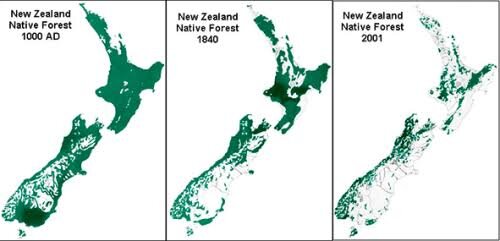As I have said many times before, any form of food production has an environmental impact, full stop.
The only way to not have an impact is for all of humanity to die at once, everything else implies some form of compromise. This applies not only to all forms of food production but also to urban development and so on.
Personally I’m very interested in minimising my carbon footprint, so I cycle as much as can, I don't use any form of engine when I go spearfishing, I produce food in my garden, and so on.
But then my bicycle is made of mined metals, many parts come for oil derivatives, as it is the fiberglass of my canoe, my speargun, my wetsuit, and so on. The paddles and the boom of my canoe are partly made from wood that was cut from living trees, where my house stands there was native forest less than 500 years ago… and I’m not even bringing in the flying I have done for my work on controlling fisheries. We all have impact… how much we do is a matter of personal choice and public policy.
Fisheries do have environmental impacts no doubt… yet when I read or hear this usual argument against trawling for example:
“Imagine if the native forests were bulldozed in at least part of them, and in all wetlands, dunes and alpine areas… the public reaction would be swift and visceral”.
And I look outside my window… and that is what I see!! Houses and farmland! If you fly from over NZ other than National parks and areas that are useless for agriculture… that is what we have done!. We almost eliminated all native forests to plant and grow introduced plants and animals and made cities. And where is the swift and visceral and public reaction?
My colleague and friend Andy McKay among other many talents is an oracle of information, and many times I found each other confronted by the same rhetoric. He recently posted some data in regards to the impacts of the issues discussed above…
In comparison, trawling (that no doubt impacts benthos, yet in different ways, under different types of bottoms and gear configurations and depths) is really limited using the usual parameters of comparison. Andy did some figures from publicly released data from Fisheries NZ for 2019 via a OIA
I’m all for minimising our environmental footprint, but not from a point of hypocrisy, cherry-picking information, and singling out a particular form of food production because is the one you understand the least and/or dislike the most.
Yes fishing does impact nature, yet even in the arguable most fished area of the country, the Hauraki gulf (by commercials and recreationals), at the doorstep of the of NZ biggest and richest city, at a beach that is accessible by public transport less than 30 km from downtown (and 200m down the road from my home). I see at least 10 to 20 times a year dolphins frolicking, kahawai boilups, all sorts of birds diving for baitfish, stingrays cruising the sands while I swim above… In the meantime, I challenge anyone to find tuataras, kiwis, or any NZ native species in the same numbers at any farm in the country… let alone one at 30 km from downtown Auckland.
We all have to do better, and fisheries have a lot to do! But if you take the bias out, some fisheries are doing comparatively better than many other food systems that do not get the level of criticism (and hate) that fisheries get.






